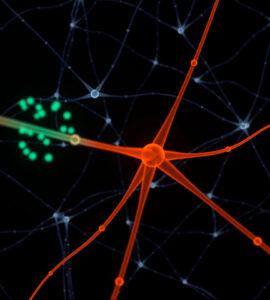 Posted On
Posted On
Building Recommendation Systems: A Project-Focused Approach in Pune’s Courses
 Posted On
Posted On
Recommendation systems are the backbone of many digital platforms today, from e-commerce websites to music streaming services. These systems provide personalised suggestions to users based on their preferences, behaviours, or interactions with a platform. With the rise of data-driven businesses generally see a growing demand for data scientists skilled in building and fine-tuning recommendation systems is growing rapidly.
In Pune, a data science course offers an in-depth exploration of recommendation systems, combining theoretical knowledge with practical, project-focused learning. This article delves into how Pune’s data science course equips students with the required set of skills to build and deploy effective recommendation systems, focusing on hands-on projects and real-world applications.
Understanding Recommendation Systems
Recommendation systems (or recommender systems) are designed to predict a user’s preferences based on available data. These systems work by analysing patterns in user behaviour, such as past purchases, ratings, clicks, and searches, to suggest items that the user might be interested in. There are several types of recommendation systems, but they generally fall into one of three categories:
- Collaborative Filtering: This approach makes recommendations based on the preferences of similar users. It assumes that if two users have liked similar items in the past, they are likely to enjoy similar items in the future. Collaborative filtering can easily be divided into two types: user-based and item-based.
- Content-Based Filtering: Content-based recommendation systems suggest items that are usually similar to what the user has liked in the past, actively based on item attributes. For example, if a user has watched romantic comedies, the system might recommend other films from the same genre.
- Hybrid Methods: Hybrid recommendation systems combine collaborative and content-based methods to improve the accuracy and diversity of recommendations. This approach addresses the limitations of each individual method.
For students enrolled in a data science course in Pune, mastering these core recommendation techniques is crucial, as they are applicable across many industries and domains.
Recommendation Systems in Pune’s Data Science Course
Pune’s data science course offers a comprehensive curriculum that covers the theory behind recommendation systems, alongside hands-on projects that specifically allow students to apply their learning. The course is designed to guide students through the process of building recommendation systems from scratch, using real-world datasets and state-of-the-art tools.
Students in Pune gain exposure to a wide range of techniques and technologies used to build, optimise, and evaluate recommendation systems. Here are some key aspects of the curriculum:
- Collaborative Filtering Techniques: Students start by learning about collaborative filtering, one of the most widely used methods for building recommendation systems. They gain experience with user-based and item-based collaborative filtering and explore techniques such as matrix factorisation to improve recommendations.
- Content-Based Filtering: The course also covers content-based filtering, which focuses on recommending items based on their features (e.g., movie genre, actor, or director). Students learn how to extract and process data to create feature vectors and implement algorithms to make recommendations based on this data.
- Hybrid Methods: To improve the effectiveness of recommendations, students are taught how to combine collaborative filtering and content-based filtering techniques. By learning to implement hybrid models, students can create more personalised and accurate recommendations.
Hands-On Projects in Pune’s Data Science Course
One of the standout features of Pune’s data science course is its project-based approach. Students are not just taught theory; they are encouraged to apply what they learn by working on real-world recommendation system projects. These projects are most likely designed to simulate the challenges usually faced by data scientists in the industry, preparing students for the demands of the workforce.
Some examples of hands-on projects that students might work on include:
- Building a Movie Recommendation System: In this given project, students create a recommendation system that highly suggests movies to users specifically based on their past viewing history and preferences. They use collaborative filtering or content-based filtering methods to generate personalised recommendations, and evaluate the model’s performance based on user feedback.
- E-Commerce Product Recommendations: Students work on an e-commerce recommendation system, suggesting products to users based on their browsing and purchasing patterns. This project involves processing transactional data, performing feature engineering, and deploying a recommendation engine to make accurate suggestions.
- Music Playlist Recommendations: Another project focuses on building a recommendation system for a music streaming platform. Students learn to recommend songs or albums based on a user’s listening history, genre preferences, and artist selections, using collaborative filtering or hybrid models.
In addition to these projects, students are introduced to the process of data collection, cleaning, and preprocessing, which are essential steps when building any recommendation system. By working with real-world datasets, students in Pune gain a deeper understanding of the complexities usually involved in creating and deploying recommendation engines.
Tools and Technologies Used in Pune’s Data Science Course
To build effective recommendation systems, data scientists must be proficient in a most likely a range of programming languages, libraries, and tools. Pune’s data science course ensures that students gain hands-on experience with the most popular technologies used in the field of recommendation systems.
Some of the key tools and technologies taught in the course include:
- Python: Python is the significant programming language used in the course. It is widely used in data science and machine learning due to its simplicity and highly extensive libraries. Students use Python libraries such as Pandas, NumPy, and Scikit-learn to process and analyse data, and TensorFlow or PyTorch for implementing deep learning-based recommendation systems.
- Collaborative Filtering Libraries: Libraries like Surprise and LightFM are commonly used for collaborative filtering tasks. These libraries provide built-in algorithms for matrix factorisation, which is essential for building user-item recommendation systems.
Challenges in Building Recommendation Systems
Building effective recommendation systems can be challenging, even for experienced data scientists. Some common challenges students encounter in Pune’s data science course include:
- Data Sparsity: In many real-world scenarios, user-item interaction data is sparse. For example, not every user has rated every item, which makes it difficult to build accurate recommendations. Students are taught how to handle sparse data and use techniques like matrix factorisation to overcome this issue.
- Cold Start Problem: The cold start problem occurs when new users or items enter the system, and there is insufficient data to make accurate recommendations. Students learn how to address this issue by using hybrid models or relying on content-based methods for new items.
- Scalability: As recommendation systems grow and handle more data, scalability becomes an issue. Students learn how to optimise algorithms and use distributed systems to scale their recommendation engines efficiently.
Conclusion
Recommendation systems are an important component of modern data-driven applications, and building them requires a deep understanding of data science techniques and algorithms. Pune’s data scientist course provides students with the skills to develop, optimise, and deploy recommendation systems through a project-focused curriculum. By working on hands-on projects and gaining experience with real-world datasets, students are well-prepared for careers in data science, where recommendation systems play a central role in creating personalised user experiences.
Whether working on e-commerce platforms, media streaming services, or social networks, the ability to design and implement recommendation systems is a valuable skill that will continue to be in high demand across industries. Pune’s data science course ensures that students have the expertise to tackle these challenges and build effective, scalable recommendation systems.
Business Name: ExcelR – Data Science, Data Analyst Course Training
Address: 1st Floor, East Court Phoenix Market City, F-02, Clover Park, Viman Nagar, Pune, Maharashtra 411014
Phone Number: 096997 53213
Email Id: enquiry@excelr.com






